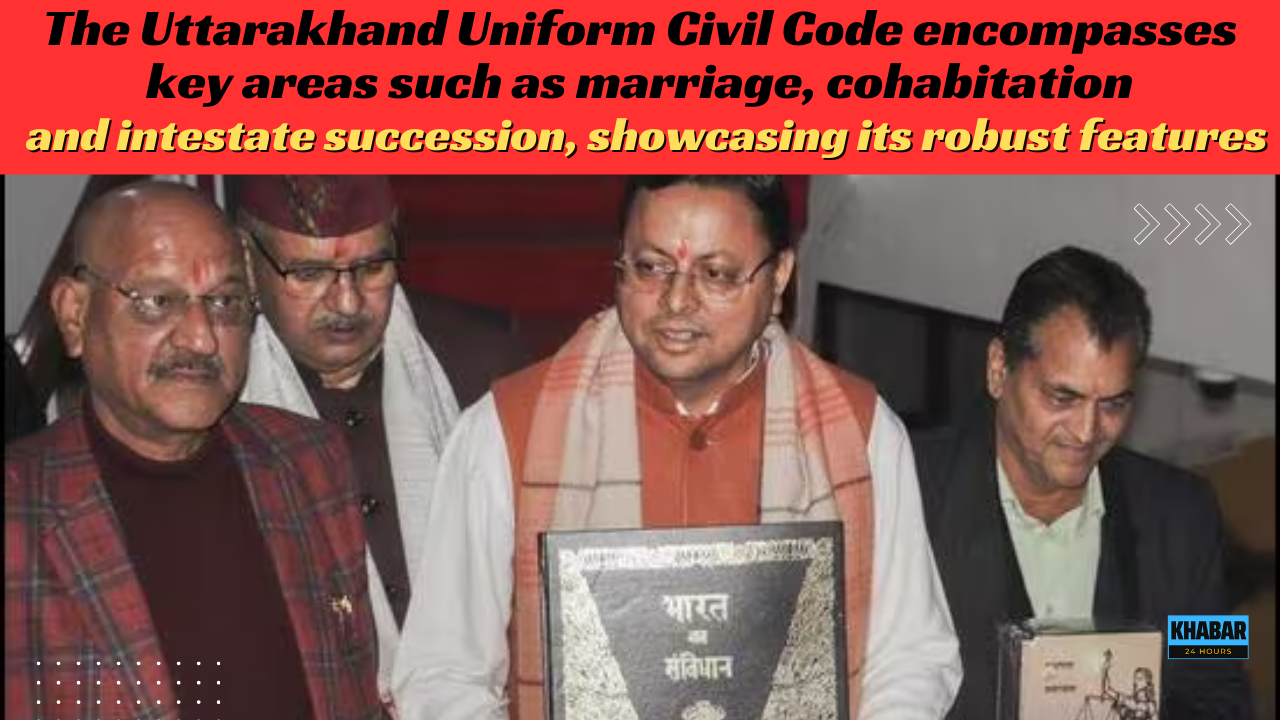The proposed Uniform Civil Code in Uttarakhand would extend its jurisdiction to all inhabitants except those belonging to Scheduled Tribes as listed under Part 21 of the Constitution.
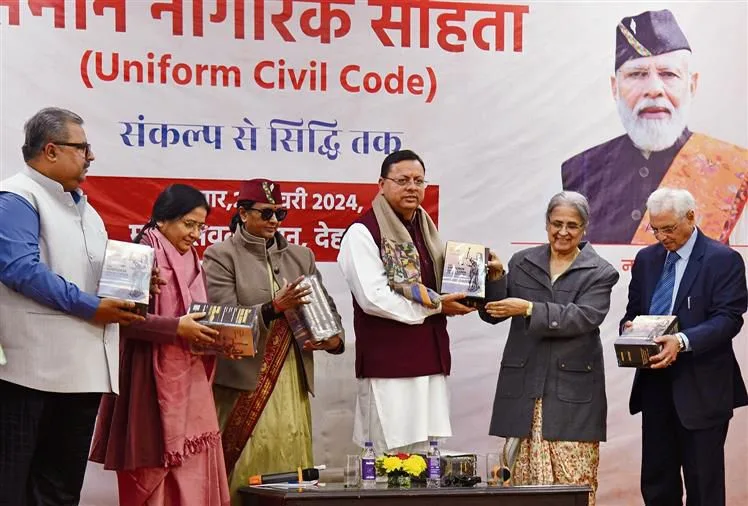
In the state assembly, Uttarakhand Chief Minister Pushkar Singh Dhami presented the Uttarakhand Uniform Civil Code. This forthcoming legislation would encompass all state residents, with the exception of those classified as Scheduled Tribes under Part 21 of the Constitution. Here are the notable attributes of the impending law:
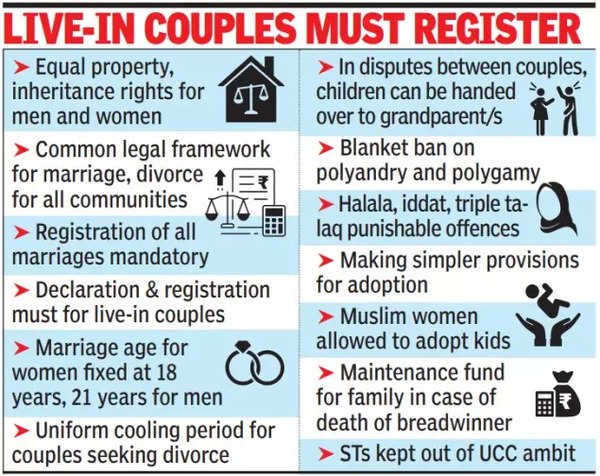
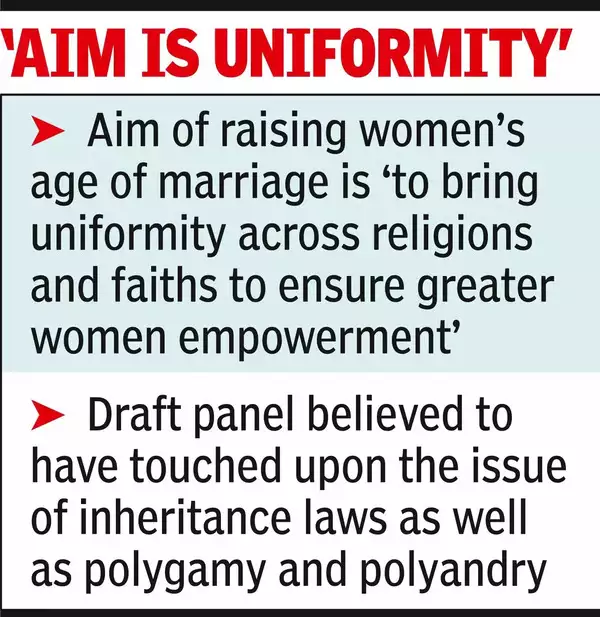
The legislation applies to all individuals residing in Uttarakhand, defined as those who have resided in the state for a year or more and have benefited from central or state government schemes.
Regarding marriage, the law stipulates a minimum age of 21 for men and 18 for women. Both parties must be of sound mind, and neither should have a living spouse at the time of marriage. Marriages within prohibited relationships, including immediate family members such as father, mother, grandfather, and grandmother, are not permitted.
The law permits marriages under various religious ceremonies, including Nikah (Muslim marriage), Saptpadi (Hindu marriage), Anand Karaj (Sikh marriage), or any other religious form not prohibited by the proposed legislation.
Additionally, every marriage must be registered within 60 days. Providing false information during marriage registration can result in a three-month jail term and a fine of ₹25,000, while failure to register the marriage incurs a fine of ₹10,000.
Marriages cannot be terminated without a court order, with the consequence of up to three years’ imprisonment for violations. Additionally, marriages that contravene specified conditions may lead to a jail term of six months and a penalty of up to ₹50,000.
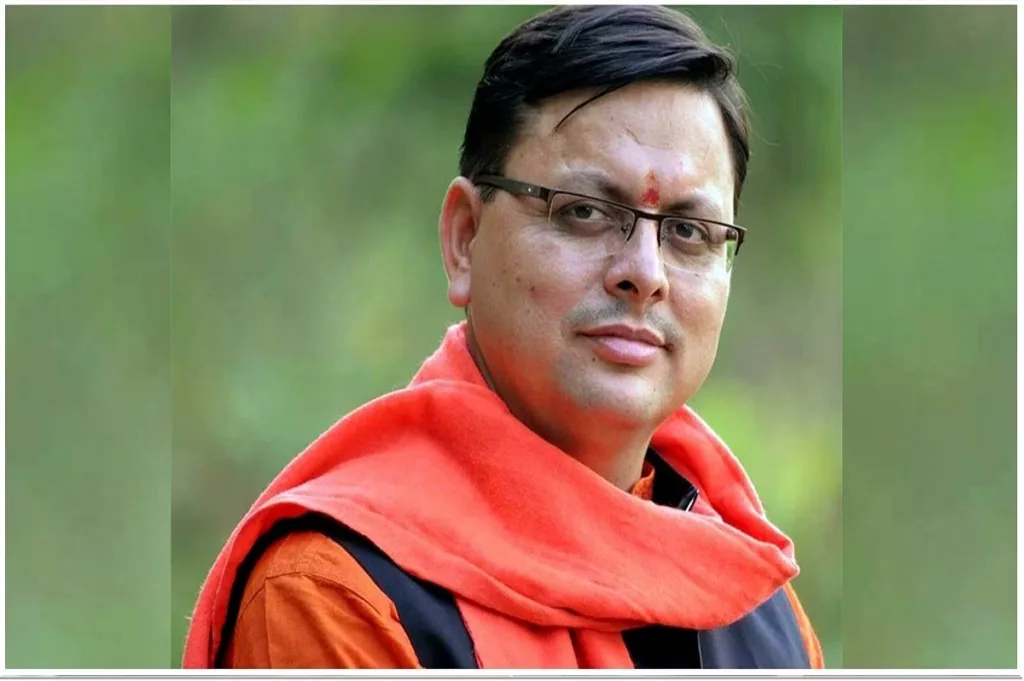
Divorce petitions must be filed in designated courts, and the decree should be issued within 60 days. Both men and women have the right to alimony and maintenance. Appeals can be made to the High Court in cases where family court orders are not consensual.
Under the proposed law, all live-in relationships must be registered with the designated registering authority. Live-in relationships falling under prohibited categories, or involving a married partner, will not be permitted. Children born from live-in relationships will possess full legal rights.
If either partner is under 21 years old, the registrar will notify the parents and forward the registration to the local police station. Failure to register live-in relationships may lead to imprisonment for up to three months, a fine of ₹10,000, or both.
Upon termination of the live-in relationship, the registrar must be notified, who will then inform the other partner. If a man abandons a woman in a live-in relationship, he must pay maintenance to the woman as determined by the competent authority.
In cases of intestate succession, the immediate family members of the deceased, if no registered will exists, will inherit an equal share of the property. Should there be no immediate family members, the property will be equally divided among second-line relatives, specifically immediate first cousins from the paternal side. If no claimants emerge, others will be invited to assert their claims to the property.

The law ensures that both sons and daughters will inherit an equal share of the property, with special provisions safeguarding the Hindu United Family (HUF). An authority appointed by the state government will determine the distribution of property among claimants.

